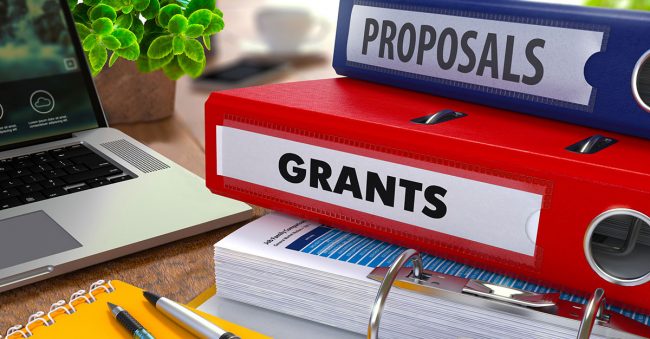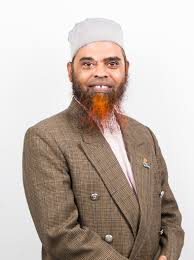Scientists trained with science diplomacy and policy are commonly referred as science diplomats. Science diplomacy and policy open dialogues and communications on common or shared problems among interested groups. Thus, initiate exchange of views and ideas among partners and groups or organizations in noncompeting manner to better serve the community. Regular sharing of views and ideas help mitigate common issues which otherwise were impossible. Here by naming scientists I refer to all from biomedical scientists to social and political, to name a few.
In Bangladesh, though there is no institutionalized science diplomacy or science policy in place, there are couple of good examples of implementing science for public goods. For example, Bangladesh is a country where only 60% of the population has access to electricity. However, a science-diplomacy engagement with Russia, made possible to install a nuclear plant to generate electricity for the country with possible lower cost. Bangladeshi Prime Minister Sheikh Hasina visited Russian President Vladimir Putin in Moscow in 2013, and the two countries signed a deal providing a loan to build a nuclear plant. Russia is also training the nuclear plant’s Bangladeshi staff on the use of its reactors for generation of electricity and related research. Bangladesh expects the plant to go online by 2021, generating 10% of the country’s electricity. This is such a big achievement for Bangladesh.
There are more examples of science policy exercise in Bangladesh. To reduce transportation cost, Bangladesh is connected with Nepal, Bhutan and India through road and highways for transportation of industrial and agricultural goods. Bangladesh is also keen to join Asian highway connecting Asian superpowers China and India through Myanmar, Laos and Cambodia. This highway will open new business opportunities with east and south-east Asian region. Bangladesh government will also earn extra revenues once the highway opens and connect these nations. This is a matured policy exercise in terms of political, social and economic context of Bangladesh.
These show that the understanding of the benefits of policy as well as science diplomacy is growing among Bangladeshi policymakers. Not only in energy and transportation sectors mentioned above, but also in global public health sectors. Recently, Bangladeshi prime minister is appointed as co-chair of tripartite antimicrobial resistance containment program of World Health Organization (WHO). Bangladeshi leadership will be crucial for world antimicrobial resistance containment work. This shows the interest of the highest policy makers of solving national and global issues through science and diplomacy.
However, scientists who exercise science are mostly absent in the process. Also, infrastructure to support scientist to do research with an aim to serve national interest are scarce. As a result, random implementation of science and scientific policy as well as diplomacy is observed. There is no complete master plan for next 10 or 100 years. Thus, progress made so far is not sustainable. To address this gap, we need institutionalized support in implementing science and science-based policy for the better interest of our people.
Especially, in this COVID-19 pandemic, when economy has been shattered, people lost their jobs, schools are off; trained science diplomats of biomedical sector can help procure appropriate COVID-19 vaccines with best possible ways especially with international collaborations. Vaccine can help restore things normal by achieving herd immunity to the community. Several international collaborations are seen among scientists in biomedical sectors to design, improve and produce effective vaccines. Like partnership of Pfizer with BioNTech where world giant USA pharmaceutical company Pfizer joined with small unfamous BioNTech company in Germany to produce best effective COVID-19 vaccine known so far. More examples are available (e.g., Oxford-AstraZeneca COVID-19 vaccine).
However, Globe Biotech, a Bangladeshi small company, have ability to produce quality biological products; is struggling because of not having experience, infrastructure, and international collaborations to support its initiative from inside Bangladesh. They will need knowledge based scientific support to validate and do human clinical trial with COVID-19 vaccine; more specifically vaccine candidates they designed. An institutionalized support led by a group of trained scientists and science diplomats experience with dealing issues related to subject matters and having handy international collaborations would have been able to fill this gap and guide Globe Biotech to come out from this situation. This might have helped their COVID-19 vaccine to be validated by this time. The current national technical advisory board for COVID-19 does not serve this purpose.
Scientist and science diplomats can be useful in many ways. They can install peace across tensed borders. There are several examples where scientists and science diplomats helped to overcome political tension by working together. For example, SESAME project, a remarkable partnership among Israel, Iran, Palestine, Egypt, Jordan, Pakistan, Turkey, and Cyprus to build a research facility just outside of Amman in Jordan; doing research on synchrotron-light for experimental use and applications in the Middle East. Inaugurated in May 2017, the SESAME project is working to expand its experimental facilities, along with its promise of connecting Israeli, Arab and other researchers to serve their community. Another good example is US-Russia partnership toward space exploration. The bottom line is scientist and science diplomats can attract international collaboration and thus cherish values of science diplomacy by building bridges between communities, societies, and nations through scientific cooperation. Recent political tension between Bangladesh and Myanmar over Rohingya issue is not beyond this scope.
In this current situation, Bangladesh badly need institutionalized support from scientists and science diplomats in all possible sectors to advance local and regional growth for the betterment of her country people. We don’t have the luxury to delay with that.
Author: Iftekhar Rafiqullah, PhD researcher, University of Mississippi Medical Center, Mississippi, USA. E-mail: iftekharrafiqullah@gmail.com



